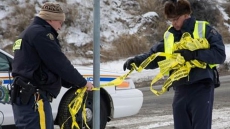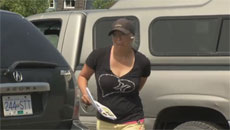OTTAWA — Canada's top military commander is trying to clear up an apparent contradiction about special forces soldiers directing air strikes in Iraq.
Gen. Tom Lawson, the chief of defence staff, said publicly at end of October that the elite troops would not accompany Iraqi or Kurdish forces into battle, nor would they pinpoint targets for coalition warplanes.
Opposition critics have pointed to those remarks and others from Prime Minister Stephen Harper last September as proof the government misled people about the mission, but Lawson says things have changed since then.
"To be clear, the situation on the ground has evolved since I offered those remarks and we have increased our assistance with respect to targeting air strikes in direct correlation with an increased threat encountered by the (Iraqis)," Lawson said in a written statement.
"Our personnel are not seeking to directly engage the enemy, but we are providing assistance to forces that are in combat."
The Iraqi government, throughout the fall, pressured the U.S.-led coalition to step up the bombing campaign to help contain Islamic State extremists as they overran swaths of the country's north and west.
Brig.-Gen. Mike Rouleau, the commander of Canada's special forces, said Monday his troops have guided 13 bombing missions from the front lines since the end of November.
National Defence has held several briefings since then, but did not reveal the expanded role, which Rouleau denied was an escalation.
Defence Minister Rob Nicholson, in a conference call on Thursday, suggested that guiding air strikes was a possibility considered when the deployment was approved in September and that the government was careful not to tie the hands of soldiers in the field.
"We didn't put limits on their ability to advise and assist the Iraqis," Nicholson said after a meeting of members of the anti-Islamic State coalition in London. "The special forces were there to provide advice and assistance and that's what they've done."
The meeting of 21 countries involved in the fight against the Islamic State covered a broad range of issues outside of the military campaign, which has been the main focus of the Harper government's public comments.
Nicholson reiterated how much humanitarian aid Canada has contributed and spoke in general terms about allied efforts to cut off the flow of funds and foreign fighters bound for the battlefields of Iraq and Syria.




